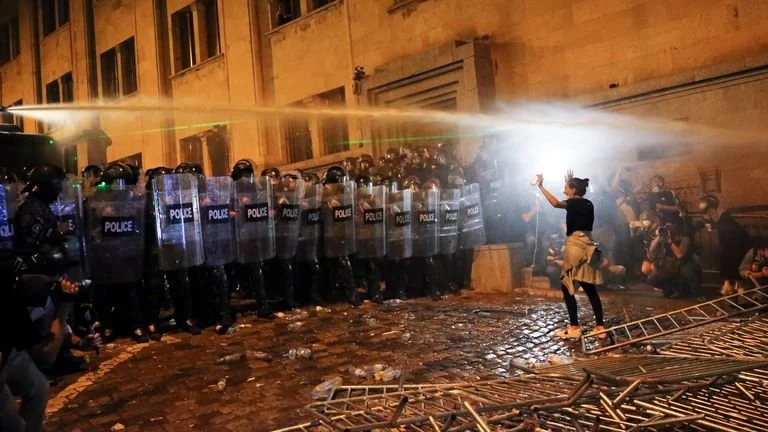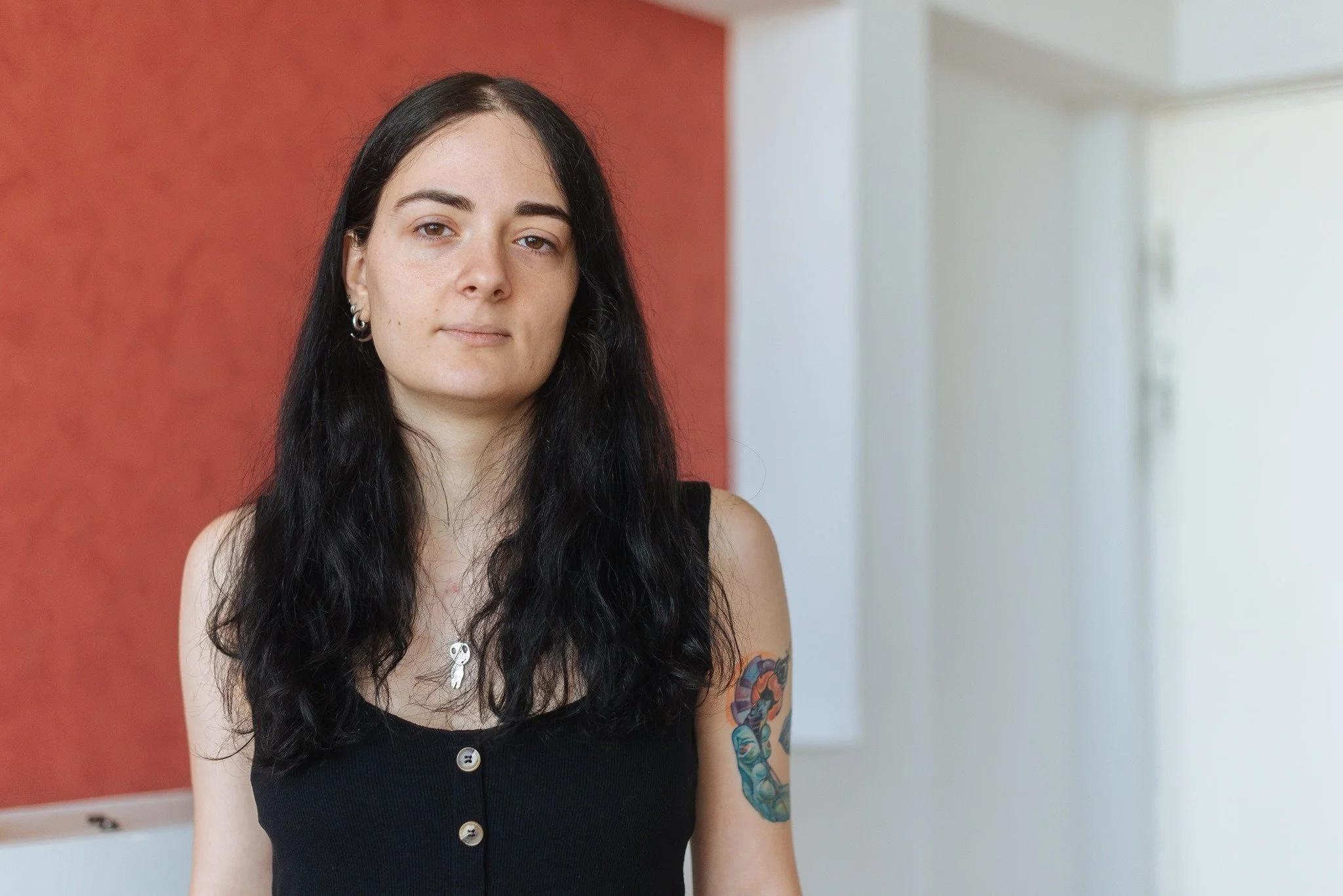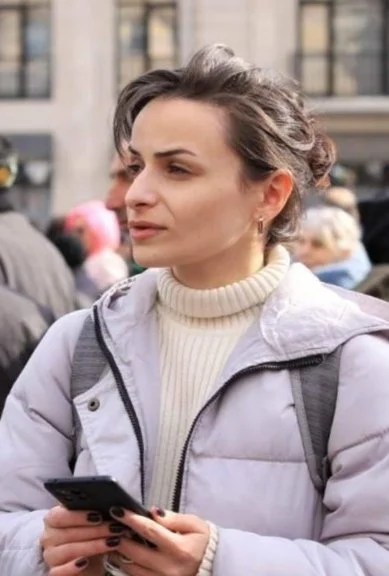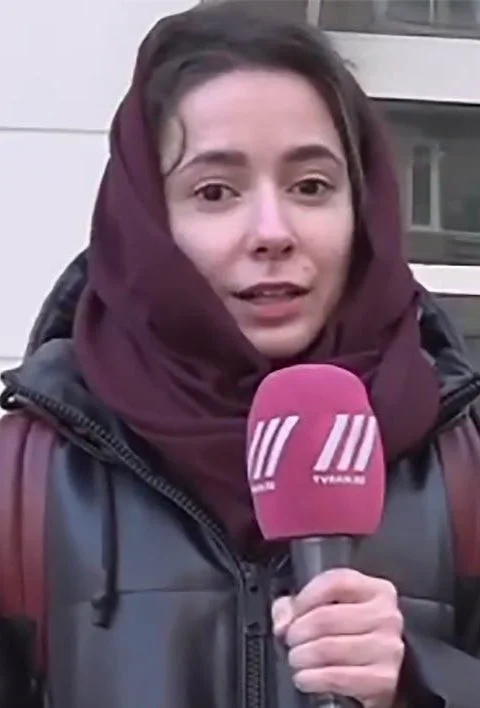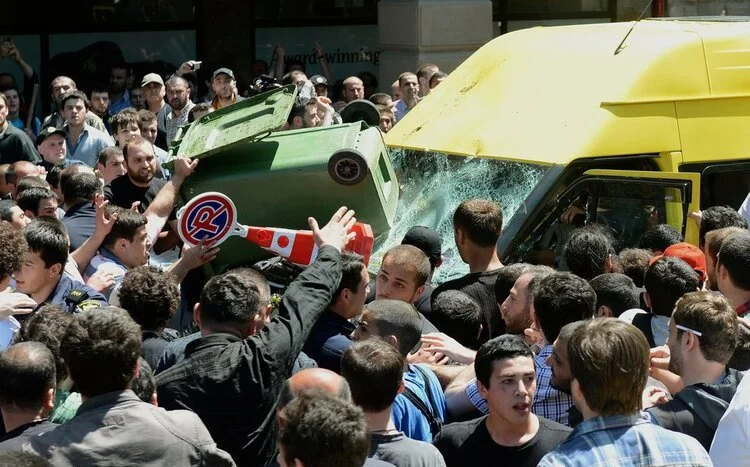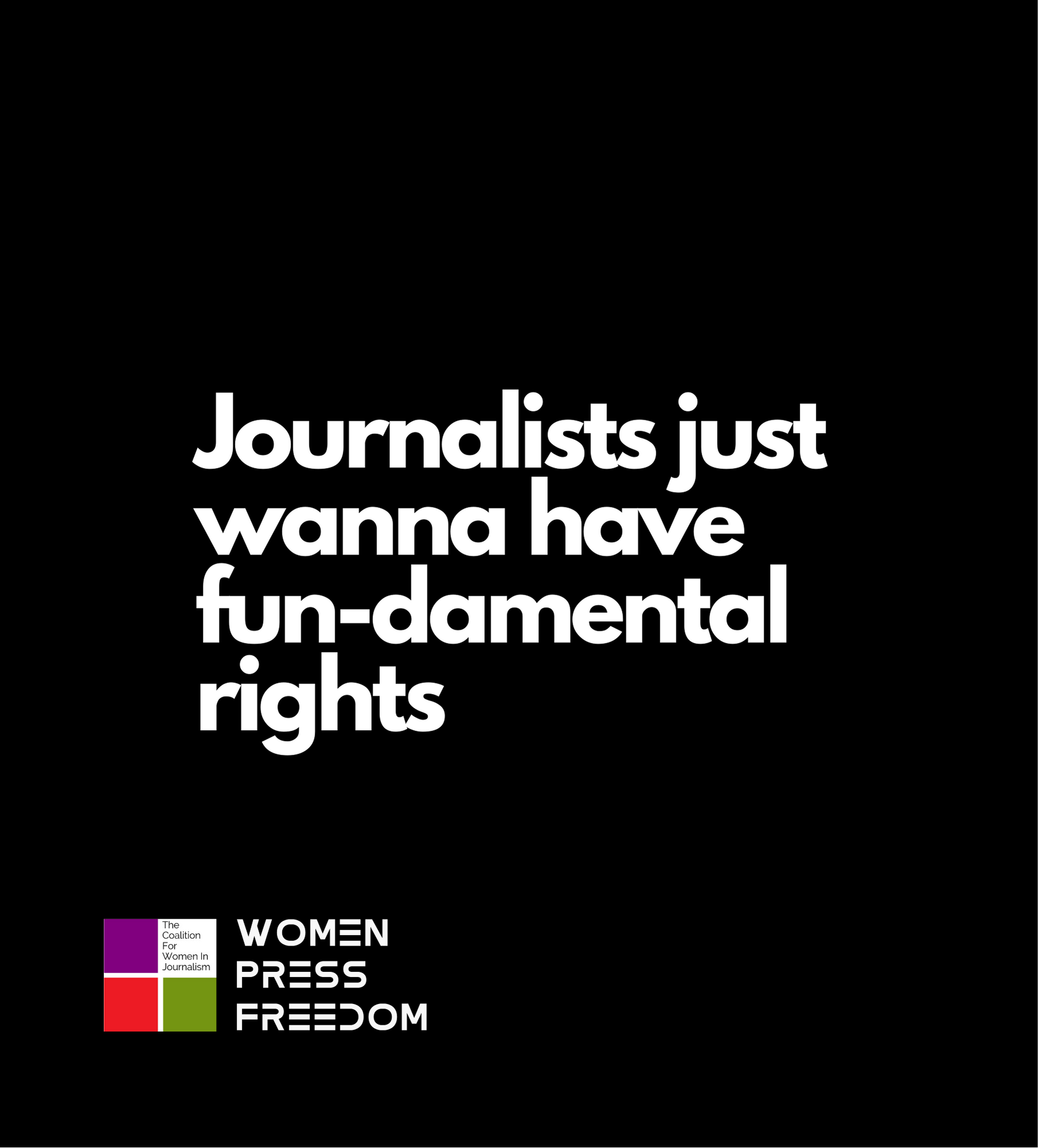Georgia: Journalists and Media Outlets Attacked Amidst Protests Against “Russian Law”
Women Press Freedom firmly condemns assaults on press, demands “foreign agents” law is withdrawn
Location: Georgia
Date: May 16, 2024Updated: June 5, 2024Women Press Freedom is deeply concerned about the passage of the controversial "foreign agents" law by the Georgian parliament. This law, reminiscent of Russian-style legislation, poses a significant threat to media freedom and journalistic independence in the country. Despite widespread public outcry and mass protests opposing the bill, the government has chosen to push forward with this undemocratic measure, which endangers voices critical of state actions. Throughout the demonstrations, journalists and media workers have faced intimidation, insults, and even physical attacks, seemingly orchestrated by entities associated with the government. We urgently call for an immediate end to these attacks on journalists. Women Press Freedom has observed how similar legislation in Russia has been used to suppress, harass, and intimidate independent journalists. Georgia's vibrant independent media landscape, which has flourished in recent years, plays a vital role in holding the government accountable and informing the public. We are deeply concerned that this new law will devastate this vital aspect of Georgian society. The international community must resoundingly denounce this unjust legislation and loudly condemn the attacks against the press covering protests and reporting critically on the “foreign agents” law. As a candidate for European Union membership, Georgia's government cannot continue enacting laws that blatantly contradict European democratic principles without facing consequences.
On May 14, 2024, Georgia's parliament approved the contentious "foreign agents" bill, despite significant street demonstrations and disapproval from Western governments. The violent suppression of protesters and government dissenters has sparked condemnation both domestically and internationally.
Numerous journalists and independent media outlets who have reported critically on the legislation have been attacked, subjected to vandalism, smear campaigns and bans from parliament. Women Press Freedom continues to document the escalating press violations targeting women journalists in Georgia.
Police Targeting Press Covering Protests
On May 1, 2024, police officers impeded Publika reporter Lika Zakashvili and TV Pirveli reporter Nanuka Kajai, preventing them from taking images of demonstrations. Several journalists were also tear gassed by police.
An unidentified assailant attacked male journalist Giorgi Kldiashvili, Director of the Institute for the Development of Freedom of Information (IDFI) on May 7, 2024, while he was being interviewed by a cameraman from the opposition television channel TV Formula.
The escalating violations against journalists by police officers in Georgia constitute a flagrant assault on press freedom and the rule of law. With alarming frequency, members of the media have been impeded, subjected to brutal beatings, and targeted harassment at the hands of law enforcement personnel. The use of excessive force, including the deployment of masked units employing ultra-violent methods, reflects a disturbing trend of state-sanctioned intimidation aimed at silencing critical voices and stifling dissent.
Attacks on Property and Smear Campaigns
On May 10, 2024, investigative media outlet Studio Monitori reported that the car belonging to journalist and organization head, Nino Zuriashvili, was defaced with insulting posters. Phrases such as 'agent sold for money' and 'whore' were found written on Zuriashvili’s car, accompanied by crude drawings. This attack not only targeted Zuriashvili but also aimed to intimidate the entire organization.
The NGO Media Development Foundation (MDF) and the Myth Detector fact-checking platform also fell victim to the attacks. Posters labeling staff as 'grant-eating agents' were placed outside their offices. Tamar Kintsurashvili, CEO of MDF and Chief Editor of Myth Detector, on May 10, 2024, shared footage showing two people dressed in black and wearing masks as they hung the posters on the walls, indicating a coordinated effort to intimidate and silence media organizations critical of the government.
The targeted nature of these attacks, coupled with the timing following the opposition to the reintroduction of the “foreign agents” law, raises serious questions about the involvement of state authorities. Studio Monitori explicitly stated, "The fact that authorities and law enforcement institutions do not respond to such attacks on journalists leads us to conclude that the authorities are behind these acts." Such allegations, if proven true, would represent a grave violation of press freedom and democratic principles in Georgia.
Weeks later, on the morning of June 1, communications manager for Media Development Foundation (MDF) Mariam Akhalkatsi revealed that the offices of MDF and Myth Detector were once again vandalized. Masked men, once again, scrawled offensive comments (“pseudo liberals work here”; “agents”; “slaves”; “traitors”) on the walls of the outlets.
On May 31, 2024, MP Dito Samkharadze, a member of Georgian Dream, admitted to organizing offensive graffiti targeting the offices of media outlets, non-governmental organizations (NGOs), and political parties. This confession was made in a Facebook post where Samkharadze also issued threats against critics of the government.
In his post, Samkharadze expressed strong disdain for those he referred to as "neo-fascists" and "stateless agents," suggesting that their actions were met with retaliation. He warned that any negative actions against members of the "Georgian Dream" would be met with severe and multiplied consequences. His message conveyed a clear intention to intimidate and suppress opposition.
These actions represent severe infringements on press freedom and the safety of journalists in Georgia. The involvement of a ruling party member in orchestrating these attacks is particularly troubling, as it suggests that the government may be complicit in undermining free expression and intimidating the press. Such behavior is incompatible with democratic principles and the rule of law.
Threatening Phone Calls Targeting Journalists and Media Outlets
Natia Kuprashvili, Director of Journalism Resource Center: Kuprashvili received multiple calls from numbers registered in Chad, Ukraine, and Georgia. The callers used vulgar language, mentioned her apartment address, and issued threats of revenge due to her opposition to the “foreign agents” law. The fact that the caller had information about Kuprashvili's personal life, including the presence of her child and mother in the apartment, adds a chilling dimension to the intimidation tactics employed.
Nino Zuriashvili, Editor-in-Chief of Studio Monitori: On May 7, 2024, Zuriashvili also received numerous intimidating calls, with the caller expressing anger over her characterization of the “foreign agents” law as Russian rather than "European law on transparency." Zuriashvili suspected that her personal information might have been obtained from government sources, indicating a potential breach of privacy and misuse of state resources for targeting dissenters.
Tamar Kintsurashvili, Director of MDF and Chief Editor at Myth Detector, also faced similar intimidation tactics, with callers swearing at her and her family members due to her opposition to the “foreign agents” law.
The Personal Data Protection Service has pledged to investigate the legality of processing the phone numbers associated with the threatening calls. However, NGOs such as the Georgian Association of Young Lawyers (GYLA) have raised concerns about the potential unlawful processing of data, possibly using databases from state agencies.
Meanwhile, the ruling Georgian Dream party announced plans to establish a database of those involved in or publicly supporting "violence, threats, and blackmail" during protests against the “foreign agents” law. This announcement has sparked fears of further repression and surveillance of dissenting voices.
Politicians Discredit Press
The Mayor of Tbilisi, Kakha Kaladze publicly insulted a reporter from the government-critical Formula TV, Nutsa Bakhutashvili. The incident occurred on May 2, 2024, when Bakhutashvili pressed Kaladze about the alleged use of rubber bullets by police during a protest against the “foreign agents” bill on May 1. Bakhutashvili implied that Kaladze was lying to the public "in a brazen manner" regarding the police's use of force against protesters. The mayor responded with a personal insult directed at the reporter, further straining relations between the government and the independent media.
Denial of Access
On June 4, 2024, Sopho Gozalishvili, a journalist with Formula TV, was prohibited from working in the parliament for six months. The ban came after Gozalishvili attempted to interview MP Nino Tsilosani, who refused to answer her questions. In a video released by Formula TV, Tsilosani is seen exiting a meeting and addressing the journalists, “I am not giving a comment to fascist TV,” before engaging in a brief altercation and threatening sanctions against the journalist for persisting with her questions.
Similarly, on June 3, 2024, Nini Balanchivadze from Mtavari TV was issued a one-month ban from the legislative building. The incident occurred when Balanchivadze pressed Tsilosani for comments regarding anticipated U.S. sanctions following the adoption of the foreign agent law. Tsilosani, who supported the controversial law, refused to respond and threatened the journalist with sanctions.
On June 5, 2024, TV Pirveli’s reporter Nata Kajaia had her parliamentary accreditation revoked. Reportedly at the request of Sozar Subari, politician of political party People's Power. According to TV Pirveli, as the accredited journalist cannot be replaced, the channel is fully banned from covering the parliament.
These bans are the first instances of enforcement under a controversial order issued in February 2023 by Speaker Shalva Papuashvili. The order imposes restrictions on media accreditation and conduct within the legislative building, requiring journalists to cease interviews immediately if the interviewee objects.
The “Foreign Agents” Law and Implications for Independent Media in Georgia
On May 14, 2024, amidst heavy police presence and widespread protests, the Georgian parliament voted to adopt the "foreign agents" law. Despite President Salome Zourabichvili's attempt to veto the bill, the Georgian Dream party, which controls the legislature, pushed the law through. The bill was signed into law by the parliamentary speaker on June 3, 2024.
This legislation, reintroduced by the ruling party in April following previous protests, mandates that nonprofits and media outlets receiving over 20% of their funding from abroad register as "organizations pursuing the interests of a foreign power." Failure to comply with registration or provide detailed financial accounts could result in substantial fines and potential legal repercussions.
By imposing stringent registration requirements and granting authorities broad powers to monitor media activities, the government is effectively silencing critical voices and independent journalism. The targeting of media outlets receiving foreign funding threatens to erode the diversity of voices in Georgia's media landscape and create a chilling effect on investigative reporting and dissenting viewpoints.
Western governments, particularly the United States and certain European nations, have voiced strong opposition to the law, warning of potential repercussions for Georgia's relationship with the West. Numerous national and European bodies have highlighted the law's negative impact on Georgia's EU integration process and have raised the possibility of funding cuts and diplomatic sanctions against the country.
The passage of Georgia's "foreign agents" law signals a troubling regression in the country's commitment to press freedom and democratic values. The attacks on journalists and media outlets, coupled with the intimidation tactics employed, are unacceptable violations. Women Press Freedom urgently calls upon the Georgian government to repeal this draconian legislation and cease all forms of aggression against the press. As an aspiring member of the European Union, and support for EU membership on the rise among its population, Georgia must uphold the principles of transparency, accountability, and media freedom. We urge the international community to stand in solidarity with Georgian journalists and civil society organizations, condemning these assaults on democracy and demanding concrete action to protect press freedom in Georgia. The time to act is now, before irreparable damage is done to the vibrant media landscape and democratic fabric of the country.
Women Press Freedom is an initiative by The Coalition For Women In Journalism
The Coalition For Women In Journalism is a global organization of support for women journalists. The CFWIJ pioneered mentorship for mid-career women journalists across several countries around the world and is the first organization to focus on the status of free press for women journalists. We thoroughly document cases of any form of abuse against women in any part of the globe. Our system of individuals and organizations brings together the experience and mentorship necessary to help female career journalists navigate the industry. Our goal is to help develop a strong mechanism where women journalists can work safely and thrive.
If you have been harassed or abused in any way, and please report the incident by using the following form.





